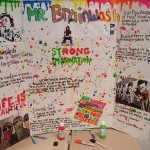Is there really a teacher shortage? When I looked up the word shortage this is what I found: it is a state or situation in which something needed cannot be obtained in sufficient amounts, and its synonyms are scarcity, dearth, paucity, deficiency, inadequacy, lack, want, shortfall, and rarity.
How many times had you heard that there would always be a need for teachers as you entered, or were recruited, into your teaching program. Not only would you always be needed, but through teaching you could change the world. This wasn’t a scare tactic, but a chance to be a professional and make a difference everyday. In some states around the country, there are still more teachers than job openings, and yet new teachers are still enrolling in teacher preparation programs. In fact, in a report from Brookings Institution, “Are we Facing a Nationwide Teacher Shortage?”, they suggest that in the US we graduate about 1 new educator for about every 1 open position nation wide. According to the U.S. Dept. of Education National Center for Education Statistics, in 2015 there are approximately 3.1 million public school teachers and there are about 50.1 million public school students in the US. This averages out to about 16.2 students per teacher in the U.S. If these reports are true, how can there possibly be a teacher shortage?
The current situation might be better described as a teacher paucity (the presence of something only in small or insufficient quantities or amounts). The truth is classroom sizes in many places are too large and many positions in hundreds of districts go unfilled each year. We have certificated teachers, but they are not in our classrooms. According to the Arizona Department of Education, Arizona had approximately 95,000 certified teachers in October 2014, but only about 52,000 were teaching that year. There is a disconnect in our education system right now and in many states is getting a little scary.
There are several factors that lead to this lack of educators in education. One factor is that we have just enough new teachers graduating and this does not pad the numbers enough to fill positions in areas of rapid growth or economic scarcity. Another factor is that some education positions are difficult to fill in certain areas of the country because of specialization requirements such as those for ELL students, ESS students, or specific math and science areas. A big issue for the reason why educators are not entering, or may leave education, seems to be lack of support. Support is a big umbrella and can describe anything from lack of assistance with students in classrooms, to mandates and policy changes enforced without support for implementation, to funding deficits effecting ones ability to stay in education. In this difficult time we cannot only focus on the quantity of teachers needed, but the quality of educators in classrooms.
The good news is there are many ways to increase the numbers of educators entering the profession and stop the exodus of teachers from leaving our amazing profession. We can use our voices to advocate for change and reform. We can be at the policy table and ensure that teachers have a voice in making decisions for educators and students. We can mentor our pre-service educators and help them gain the tools that they need to survive those first few years in their own classrooms and thrive for the other 20+ years that we want them in this profession. We can continue to support and encourage one another and speak positively of our practice and profession to all who will listen. For those of us that have been around a little while, we can encourage and inspire one another by joining organization sand associations that fuel us, pursuing advanced certificates that challenge us, and collaborating with students and staff in a way that feeds our souls.
I know what I will do to end this “teacher shortage” in the U.S. What will you do?









Comments 2
This a brave and illuminating take on a crucial issue. I’ve talked about the teacher shortage myself many times. Thanks for bringing facts to light that not many people (including me) realize.
I love that your piece is solutions-based! Yes, we can do our part to end the “teacher shortage,” and I hope that enough teachers step up to do it.